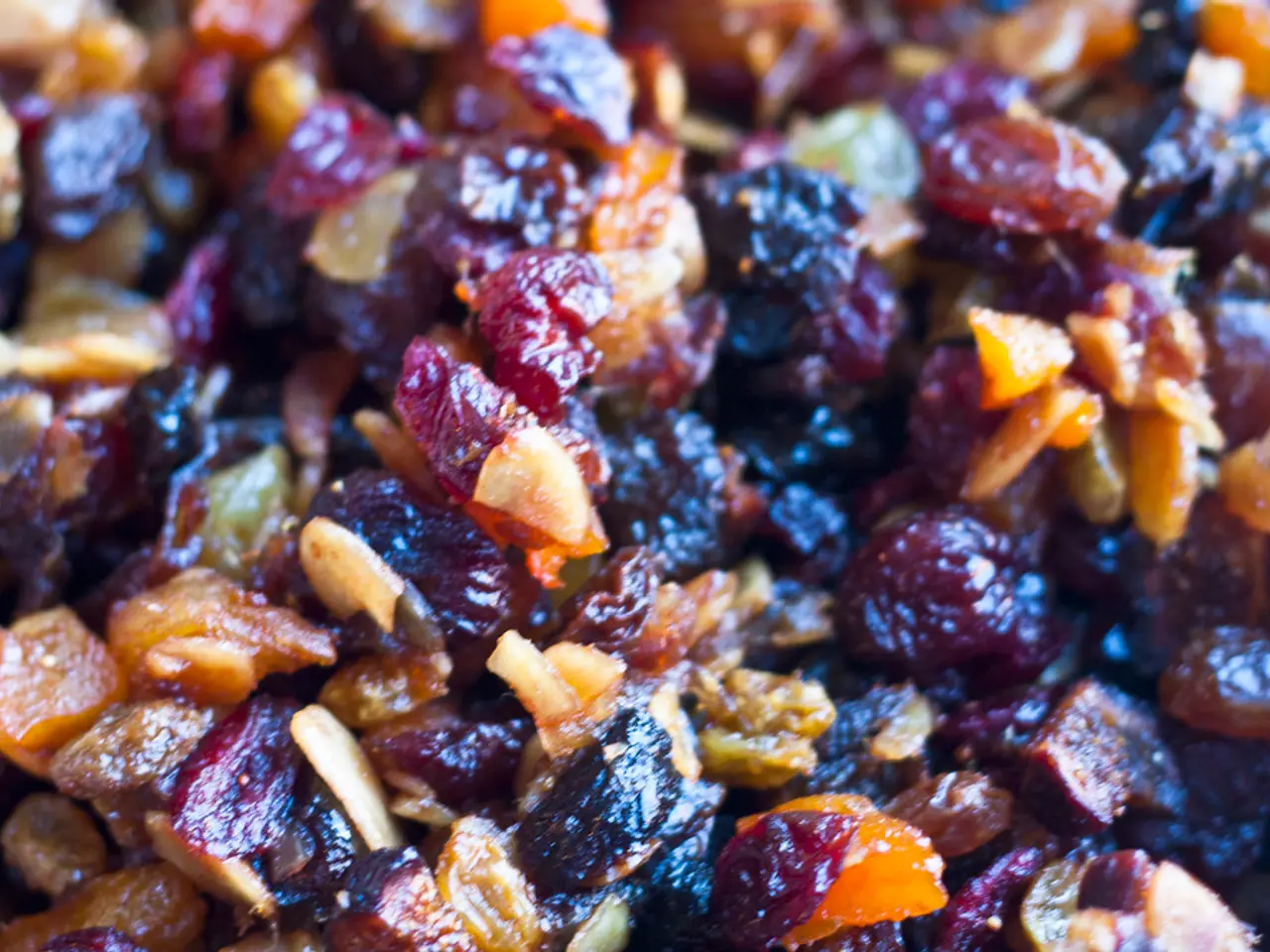Delving into Nourishment for Long Distance Physical Exertion
In the world of endurance sports, nutrition and hydration play a pivotal role in ensuring athletes have the necessary fuel to sustain energy levels and enhance performance during long-duration events. A well-planned approach to carbohydrate loading, electrolyte balance, and hydration can support sustained energy, delay fatigue, and help maintain optimal physiological function during training and races.
Carbohydrate Loading
Beginning 3-4 days before an event, athletes should increase their carbohydrate intake to about 8-10 grams per kilogram of body weight per day, while tapering exercise intensity to maximize muscle glycogen stores. Focusing on high glycemic, low-fiber carbohydrates like rice, potatoes, oats, and pasta, which are easier to digest and efficiently replenish glycogen, is key.
Avoiding excessive fiber and high-fat foods close to the event can help reduce gastrointestinal discomfort. The goal is to "super-saturate" glycogen stores to delay fatigue during prolonged exercise lasting more than 90 minutes. Female athletes may need higher carb intakes to optimize glycogen storage due to physiological differences.
Electrolyte Balance
Maintaining electrolyte intake, especially in hot or humid conditions, is crucial for endurance athletes. This can be achieved through electrolyte drinks, tablets, or salt capsules, which help replace sodium, potassium, and other minerals lost in sweat. During events lasting over 2 hours, consume easily digestible carbs combined with electrolytes, using gels, bars, or drinks designed for endurance athletes.
Monitoring signs like urine color (pale yellow) as an indicator of balanced hydration and electrolytes is also important. Electrolyte imbalances during endurance events can lead to muscle cramping, heat-related illnesses, early fatigue, and prolonged recovery.
Hydration
Proper hydration is crucial for endurance athletes, as even slight dehydration can impair performance. Begin hydrating steadily well before the event; don’t wait until the day before to drink large volumes. Use fluids that contain electrolytes to improve water absorption and maintain balance. During long events, drink small amounts regularly rather than large infrequent volumes to avoid stomach upset. Adjust hydration and electrolyte intake based on environmental conditions, exercise intensity, and individual sweat rates.
Whole grains, starchy vegetables, fruits, sports drinks and gels, breads and bagels are some of the best carbohydrate sources for endurance athletes. Paying attention to your body's signals during endurance activities and adjusting electrolyte intake accordingly can prevent dehydration and electrolyte imbalances.
In summary, a well-planned carbohydrate loading phase combined with consistent hydration and electrolyte replenishment supports sustained energy, delays fatigue, and helps maintain optimal physiological function during endurance training and races. Electrolytes are vital in maintaining fluid balance, muscle function, and nerve transmission. Proper hydration is crucial for endurance athletes, as even slight dehydration can impair performance.
- In the realm of endurance sports, nutrition and hydration are crucial for athletes, aiding in maintaining energy levels and enhancing performance during long-duration events.
- A well-planned carbohydrate loading strategy, involving an increase in carbohydrate intake and tapering exercise intensity before an event, can help optimize muscle glycogen stores.
- Focusing on high glycemic, low-fiber carbohydrates like rice, potatoes, oats, and pasta is key for efficient glycogen replenishment in the days leading up to an event.
- The kitchen can be a science lab for athletes, with many plant-based, healthy, and ethical food options available for easily digestible carbohydrate sources.
- Recipes focusing on whole grains, starchy vegetables, fruits, and sports drinks can provide the necessary nutrients and energy for endurance athletes.
- Tips for maintaining electrolyte balance during training and races include using electrolyte drinks, tablets, or salt capsules and consuming easily digestible carbs combined with electrolytes during events.
- In the health-and-wellness and fitness-and-exercise community, proper hydration is emphasized for endurance athletes, as even slight dehydration can negatively impact performance, and being well-hydrated can support maintained physiological function during events.




